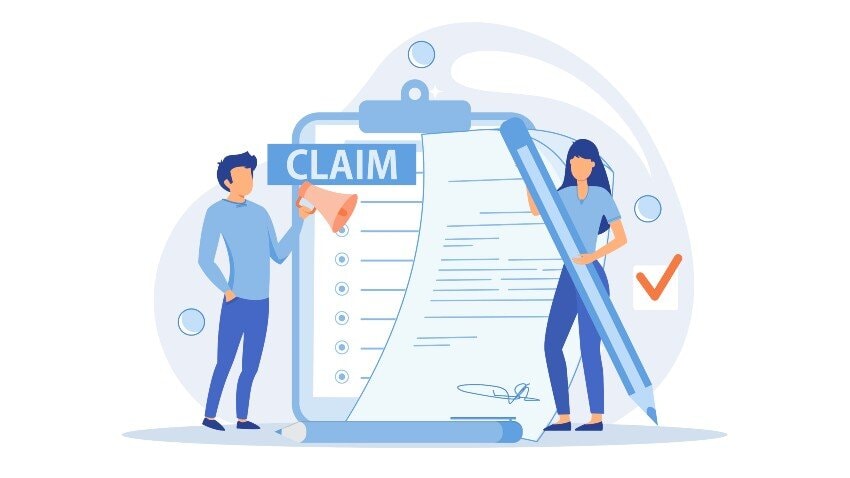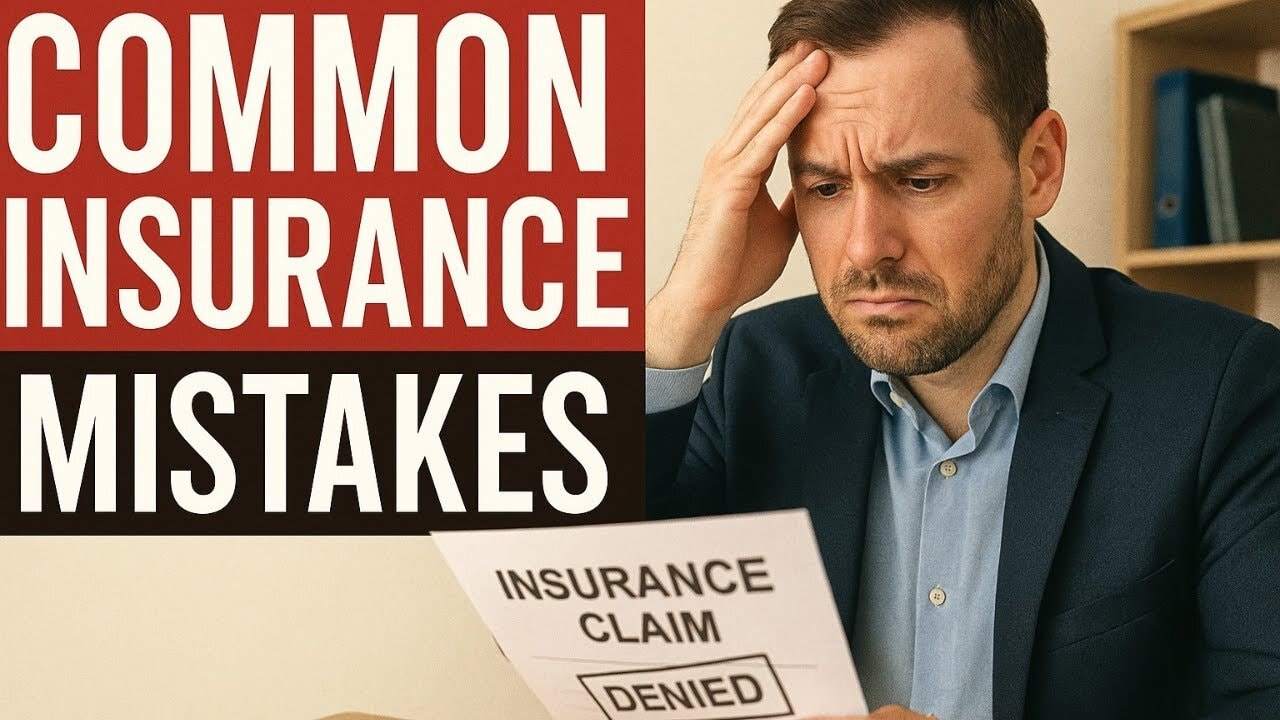Struggling with a slow claim? These 10 insurance follow up steps show how to check status, respond quickly, and move your claim forward with confidence.
.png)
Waiting for an insurance claim feels quiet, but silence rarely means progress.
Most delays happen after submission, when small actions are missed and no one flags the gap.
This guide breaks that silence with clarity. It shows how insurance follow up works in real life, without jargon, pressure, or endless calls.
These ten steps focus on what actually moves a claim forward. Not faster talk, not louder follow ups, just the right actions at the right time.

Insurance follow up explains how insurance companies review insurance coverage after submitted claims enter different claim statuses. It focuses on tracking responses, confirming accuracy, and knowing when action is required.
This step exists to prevent silence, confusion, or missed updates once a claim leaves your hands. The meaning becomes clear when you see how status changes guide every follow up decision.
How Follow Up Works In Practice
Example
A portal shows “Additional Details Required.” You upload the document, note the ticket number, and check status again after the stated review window.
Where Technology Supports Follow Up
Modern claims rely heavily on technology to simplify tracking. Insurer portals, automated alerts, document checklists, and follow-up sequences reduce effort when used consistently. Leveraging technology keeps information centralized and reduces conflicting updates.
Advanced technology adds predictability by showing progress milestones clearly.
Why This Mirrors Professional Claim Handling
In healthcare settings, revenue cycle management teams apply the same principles at scale. They track statuses, document responses, and apply tailored solutions to recurring issues. As a policyholder, you follow the same logic in a simpler form, focused on one claim and clear outcomes.
Once this role is clear, the next focus is understanding how follow up differs from one-time submission and why responsibility shifts after you click submit.
The claims process does not end with submitted claims, even though many people assume it does. One-time submission only starts the follow up process, where responses, corrections, and confirmations happen over time.
Understanding this difference prevents waiting without direction. The real change begins when tracking replaces assumption as the primary responsibility.
Once you see this contrast clearly, it becomes easier to spot the exact moment a claim moves from submission into active follow up, which is where real progress begins.
An insurance claim enters follow up when the claims process shows movement through updated claim statuses but no final resolution. This stage often includes unpaid claims that require confirmation, clarification, or response.
Knowing this timing prevents premature worry or delayed action. The follow up stage is defined by status signals rather than calendar days.
The Key Signal To Watch
Follow up starts the moment your claim becomes trackable but unresolved. That is when the insurer acknowledges it in the system, yet still needs time, information, or internal checks to close it.
Common Claim Status Updates That Trigger Follow Up
What You Should Do At This Stage
Example
Your claim shows “In Review” and the last update was five days ago. The insurer’s portal says reviews take seven working days. You set a reminder for day eight, then follow up once with the reference number ready.
Once you can identify the exact status that puts a claim into follow up, the next step is building a simple follow up process that keeps every action deliberate and easy to repeat.
A reliable follow up process exists to ensure timely reimbursement while helping resolve denials without unnecessary stress. Clear steps create consistency and reduce guesswork, especially when responses vary across insurers.
The goal is timely reimbursement through structured actions rather than repeated calls. Each step works because it addresses a specific moment in the claim lifecycle.
Organizing documents early protects patient information and prevents discrepancies that slow progress later. Insurance companies often pause claims when records are incomplete or inconsistent. Explaining a problem clearly and professionally can help address these issues effectively.
Example: A requested lab report is ready to upload, so the claim isn’t delayed for missing paperwork.
Many submitted claims fail silently due to system or entry issues. Confirming submission helps avoid unpaid claims entering accounts receivable unnoticed.
Example: Receiving a submission confirmation email ensures the claim is officially active and avoids wasted follow up later.
Checking status regularly helps patients understand progress without guessing. Claim statuses reveal whether payments are pending, under review, or require action. Using official channels reduces reliance on assumptions and supports timely reimbursement.
Example: Portal shows “In Review” for 5 days, prompting a follow up call before the insurer closes the case.
Requests often relate to patient care details or small documentation gaps. Noting these early avoids delays that affect revenue cycle performance.
Example: A request for an authorization form can be uploaded immediately to prevent the claim from going on hold.
Delayed responses increase the risk of overdue payments and claim rejection. Early action helps insurance coverage reviews move forward smoothly.
Example: Submitting missing receipts within 24 hours keeps the insurer from delaying processing.
Recording conversations supports compliance and helps resolve disputes later. Notes provide expertise when different representatives give conflicting information.
Example: Writing down the reference number of a call ensures you can follow up efficiently if the claim is stuck.
Unclear delays often hide regulatory or processing issues. Asking direct questions helps uncover problems tied to regulations or internal reviews.
Example: Asking why a claim is “Pending Documents” uncovers exactly what is needed to move it forward.
Denied claims require structured handling to avoid permanent loss. Appeals, corrected claims, and clarification requests are part of responsible claim management.
Example: Resubmitting a coding correction prevents extended delays from an initial denial.
Approval does not always mean paid. Following up until settlement ensures payments are accurate and complete.
Example: Checking the payment status 48 hours after approval confirms the full amount has been credited.
Closing too early leaves unresolved balances hidden. Confirming payment protects accounts receivable and ensures success in the claims process.
Example: Final reconciliation ensures that all submitted claims match the amount received before closing.
Once these steps are clear, the next focus is understanding how long follow up usually takes and what normal timelines look like, which helps prioritize actions without unnecessary stress.
Insurance follow up timelines vary, but overdue payments, past due payments, and unpaid claims follow recognizable patterns. Delays are not always problems, yet long gaps without updates signal when action matters. Understanding normal timelines prevents both panic and inaction.
Time expectations become useful only when paired with clear signals of progress or stagnation.
Key Factors That Affect Timing
Example
A routine outpatient claim may be processed in 7–10 days, whereas a multi-procedure hospitalization claim could take 2–3 weeks to move from submission to follow up.
How to Track Normal Timelines
Understanding What’s Normal
Example
If a claim status shows “Under Review” beyond the insurer’s stated timeframe, this is the point to initiate structured follow up.
Once you recognize what counts as normal timing, the next step is learning why claims get delayed or stuck even after submission and how to prevent small gaps from turning into extended waits.

Insurance claims often stall due to insurance companies applying internal regulations, identifying errors, or slowing the claims process during verification. Delays rarely happen without cause, even when no explanation is shared.
Recognizing these factors prevents confusion and repeated checking without purpose. Delay reasons matter because each one determines the correct response.
Common Causes of Delays
Example
A claim with incomplete patient information shows “Pending Documents.” Following up promptly resolves the delay faster than waiting for automatic updates.
Denied claims and partially approved claims do not always mean rejection is final. Appeals and corrected claims exist to address missing information, interpretation issues, or procedural gaps. Knowing the proper steps prevents rushed decisions or missed timelines.
Step-by-Step Follow Up
Example
A partially denied claim due to a misclassified procedure can be corrected and resubmitted using the insurer’s forms, preventing further delays.

Delayed payments and overdue payments often result from avoidable follow up mistakes rather than insurer intent. Small oversights compound into longer waits when actions are skipped or assumptions replace verification. Recognizing these patterns helps prevent unnecessary setbacks.
Each mistake matters because it quietly extends resolution without showing obvious warning signs.
Skipping verification often leads to unpaid claims that surface months later. This mistake weakens focus and delays resolution. Acceptance confirmation is essential for preventing silent failures within the claims process.
When follow up lacks importance, claims drift without ownership. This mindset affects success rates and increases challenges over time. Consistent attention reflects responsible handling rather than reactive behavior.
Outstanding claims left unchecked disrupt revenue and increase past due payments. Regular monitoring keeps momentum and supports better financial health. Inactivity allows small issues to grow unnoticed.
Early denial signals often appear before final rejection. Ignoring them reduces the chance to resolve issues efficiently. Claim denials require prompt attention to avoid repeated cycles and lost benefits.
Missed appeal timelines lead to permanent loss. Tracking deadlines supports compliance and improves resolve outcomes. This mistake directly impacts reimbursement opportunities.
Delayed payments are not always standard practice. Accepting delays without review harms cash flow and revenue health. Normalizing delays weakens control over claim outcomes.
Coverage rules define what insurers are responsible for paying. Overlooking them increases cost exposure and failed claims. Understanding coverage supports accurate submissions and reduces avoidable disputes.
Once these mistakes are recognized, the next focus is when to escalate an insurance follow up and who to contact, ensuring unresolved issues are handled efficiently without repeated delays.
Escalation becomes necessary when healthcare providers, healthcare practices, or the healthcare industry channels stop responding within reasonable limits. Knowing who to contact and when avoids repeated loops with no outcome. Escalation is not conflict, it is structured problem solving.
1. Identify the Responsible Contact
2. Document Prior Follow Up Attempts
3. Use Formal Escalation Channels
4. Specify the Issue Clearly
Example
A claim has remained “Pending Review” beyond the insurer’s stated timeframe. Sending a formal escalation email with the submission date, reference numbers, and prior follow up details often accelerates resolution within 48–72 hours.
Knowing when and how to escalate ensures that stalled claims are addressed efficiently and professionally. Clear documentation, direct communication, and using the proper channels reduce delays and prevent repeated back-and-forth.
Following a structured escalation process makes the follow up more effective and protects both your time and the integrity of your claim.
Yes. Policyholders can track claim statuses, submit missing documents, and follow up directly via portals, apps, or helplines. Medical billing teams help with complexity but are not strictly required for basic follow up.
Yes. Providers can clarify patient records, correct documentation, or communicate directly with insurers to resolve issues. Their involvement is usually limited to claim accuracy and supporting information.
Yes. The Affordable Care Act sets minimum coverage standards and ensures certain timelines for claims processing. Policyholders must follow up according to these regulations for covered services.
It varies. While the overall follow up process is similar—tracking, documenting, responding—specific procedures and timelines differ between insurers, providers, and service types.
Yes. Basic follow up focuses on tracking claim statuses, responding to requests, and submitting documents. Understanding some key terms helps, but full familiarity with industry jargon is not required.
Following these 10 insurance follow up steps ensures your claim moves steadily without unnecessary delays. Taking each action deliberately, from organizing documents to confirming payment, gives you control over the process and reduces uncertainty.
Consistent follow up protects your financial interests and keeps the claims process on track, making it easier to get your claim faster.